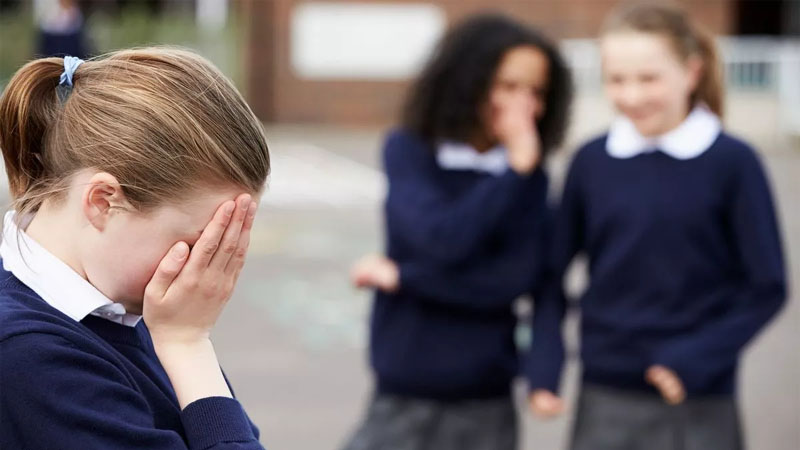Impact of Bullying on Mental Health
The Impact of Bullying on Mental Health and How to Support Your Child
Bullying is a serious issue that affects many children and adolescents. Whether it happens at school, online, or in the community, the effects of bullying can be long-lasting and deeply impactful on a child’s mental health. It’s crucial for parents to recognize the signs of bullying and understand the emotional toll it can take on their child. With the right support, children can heal, build resilience, and regain their confidence.
In this blog post, we’ll explore the long-term effects of bullying on children’s mental health and provide guidance on how parents can support their child through this difficult experience.
How Bullying Affects Mental Health
The impact of bullying on a child’s mental health can be profound. While some children may seem to bounce back from bullying, others can carry the emotional scars for years. The effects of bullying can manifest in several ways, including:
- Increased Risk of Anxiety and Depression
Children who are bullied often experience feelings of anxiety, fear, and sadness. Over time, these feelings can develop into more serious mental health conditions, such as generalized anxiety disorder, social anxiety, or depression. - The Effects: Bullying can create a sense of constant worry and fear. Victims may experience intrusive thoughts, nightmares, and an overall sense of hopelessness. They may also withdraw socially and avoid situations that remind them of the bullying.
- What You Can Do: If you notice signs of anxiety or depression in your child, it’s important to seek professional help. Therapy, such as Cognitive Behavioral Therapy (CBT), can help children manage negative thoughts, regulate emotions, and build coping skills to deal with anxiety and depression.
- Low Self-Esteem and Body Image Issues
Constant bullying, especially in the form of name-calling or physical bullying, can severely affect a child’s self-esteem and body image. Children may begin to believe the negative things they are told about themselves, leading to feelings of inadequacy and self-doubt. - The Effects: Over time, bullying can contribute to poor body image, lack of self-worth, and a distorted view of oneself. This can lead to a child avoiding social situations, becoming isolated, and even engaging in unhealthy behaviors in an attempt to change their appearance or fit in.
- What You Can Do: Reinforce your child’s positive qualities and encourage them to pursue activities that build their confidence and sense of accomplishment. Help them understand that the bullying they’ve experienced does not define who they are and that they are worthy of love and respect.
- Difficulty Trusting Others
Being repeatedly hurt by peers can lead to a lack of trust in others, making it difficult for the child to form healthy relationships in the future. They may become overly cautious or fearful of new friendships and social situations, leading to social isolation. - The Effects: Children who have been bullied may struggle with establishing trust, fearing that others will hurt or reject them. They may develop a sense of defensiveness or be hesitant to engage with others, which can impact their ability to make and maintain friendships.
- What You Can Do: Encourage open communication with your child about their friendships and social interactions. Help them understand that it’s okay to be cautious, but it’s also important to open up and trust those who are kind and supportive.
- Academic and Behavioral Problems
The emotional toll of bullying can affect a child’s ability to focus and perform well in school. Bullying can lead to difficulty concentrating, absenteeism, and even a decline in academic performance. Additionally, some children may act out in an attempt to gain control over their situation. - The Effects: Children who are bullied may have difficulty concentrating on schoolwork, leading to lower grades or school avoidance. Behavioral issues, such as acting out, may arise as a way of coping with the pain they are experiencing.
- What You Can Do: Stay involved in your child’s school life and communicate with their teachers about any challenges they may be facing. Create a supportive home environment where they feel encouraged to focus on their academic goals. Encourage them to speak up about what’s going on at school.
- Increased Risk of Suicidal Thoughts and Self-Harm
In the most severe cases, bullying can lead to thoughts of self-harm or suicide. The emotional toll of constant bullying can make children feel hopeless, isolated, and desperate for relief from their pain. - The Effects: Victims of bullying, especially those who are left unsupported, may develop thoughts of suicide or engage in self-harming behaviors as a way to cope with emotional pain.
- What You Can Do: If your child expresses thoughts of self-harm or suicide, it is critical to seek professional help immediately. A mental health professional can work with your child to address their feelings and help them develop healthier coping mechanisms.
How to Support Your Child Through Bullying
- Listen and Validate Their Feelings
One of the most important things you can do for your child is to listen to their experience without judgment. Validate their feelings by acknowledging how difficult the situation is for them. - What You Can Do: Say things like, “I’m so sorry you’re going through this,” or “I can see how hurtful this must be.” Let them know they are not alone and that you are there to support them.
- Create a Plan for Addressing the Bullying
Work with your child to create a plan for addressing the bullying, whether it involves talking to a teacher, school counselor, or another trusted adult. Teach your child strategies for asserting themselves in a calm and confident way. - What You Can Do: Help your child identify safe people they can go to at school for support, such as a teacher or counselor. If the bullying is happening online, make sure your child knows how to block or report the bullying on social media platforms.
- Encourage Positive Social Connections
Help your child connect with supportive friends and peers who uplift them. Positive relationships can help them feel more confident and less isolated. - What You Can Do: Encourage your child to participate in activities or hobbies where they can meet new friends and feel a sense of belonging. Support their interests, whether they involve sports, arts, or other social activities.
- Seek Professional Help if Needed
If the bullying has caused significant emotional distress or your child is struggling with anxiety, depression, or self-esteem issues, consider seeking professional help. Therapy can provide your child with tools for processing their emotions and building resilience. - What You Can Do: A therapist can work with your child to address the emotional impact of bullying, develop coping skills, and work through trauma. Cognitive Behavioral Therapy (CBT) is often used to help children reframe negative thoughts and build emotional resilience.

Conclusion
Bullying can have a profound impact on a child’s mental health, but with the right support, children can overcome these challenges and regain their confidence. By listening, validating their feelings, and offering support, parents can play a crucial role in helping their child heal from the effects of bullying. At Frame of Mind Clinic Psychiatry, we are here to support families and children through these difficult times.
If you’re concerned about your child’s mental health or the impact of bullying, don’t hesitate to reach out for guidance and support.









































